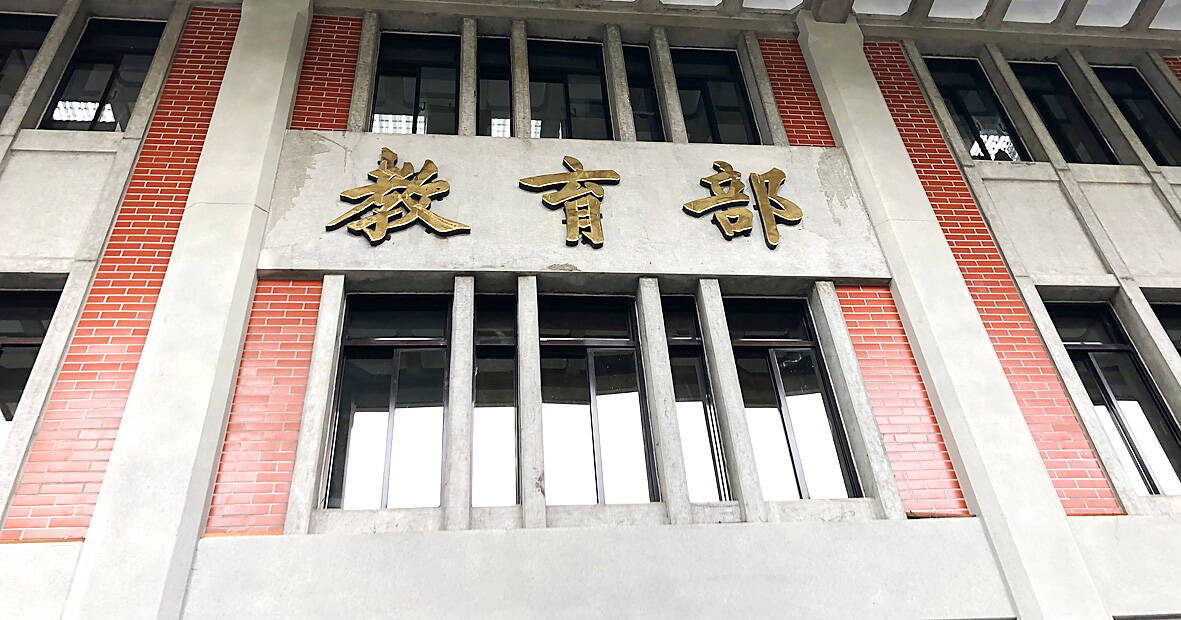The Ministry of Education is to offer subsidies to civic groups, and public and private universities as a part of a program to link family education with outdoor activities.
The subsidies would allow groups and universities to host day-long family outdoor education events with family education making up at least one-third of the event.
Department for Lifelong Education Director-General Yang Ya-ting (楊雅婷) said that civic groups could receive 50 percent subsidies for hiring staff, material costs, venue and equipment rental fees, food expenditure and insurance.

Photo: Lin Hsiao-yun, Taipei Times
The events should include and prioritize individuals in greater need of family education services, such as those who are economically disadvantaged, physically or mentally challenged, or those whose ethnic group is in need of assistance, Yang said.
Each project would receive a maximum subsidy of NT$30,000, with participants being capped at 20 to 30 people, she said, adding that the application deadline is tomorrow.
Meanwhile, the ministry’s K-12 Education Administration said that it has had 159 kindergartens participate in its trial counseling program for inclusive education since 2020.
The K-12 Administration said its program aims to implement the spirit of the UN’s Convention on the Rights of Persons with Disabilities — allowing those who are physically or mentally challenged to enjoy equal rights to education.
To achieve such a goal, kindergartens or schools would need to have inclusive education knowledge, such as introducing gross motor skills development activities, stepped-up interaction between parents and teachers, and other means so that every facet of an Individualized Educational Program becomes routine, it said.
The head of Taipei’s nonprofit Yung Chien Kindergarten, Lin Yi-hung (林意紅), said gross motor skill development would reduce the risk of pushing and shoving, and that successful activities allow children with special needs to become more coordinated and confident about their studies.
Nangang Kindergarten principal Yang Chi-min (楊繼敏) touted parent-teacher activities so parents can observe and participate in their child’s education, making parents the most important partners of teachers.

An undersea cable to Penghu County has been severed, the Ministry of Digital Affairs said today, with a Chinese-funded ship suspected of being responsible. It comes just a month after a Chinese ship was suspected of severing an undersea cable north of Keelung Harbor. The National Communications and Cyber Security Center received a report at 3:03am today from Chunghwa Telecom that the No. 3 cable from Taiwan to Penghu was severed 14.7km off the coast of Tainan, the Ministry of Digital Affairs said. The Coast Guard Administration (CGA) upon receiving a report from Chunghwa Telecom began to monitor the Togolese-flagged Hong Tai (宏泰)

A cat named Mikan (蜜柑) has brought in revenue of more than NT$10 million (US$305,390) for the Kaohsiung MRT last year. Mikan, born on April 4, 2020, was a stray cat before being adopted by personnel of Kaohsiung MRT’s Ciaotou Sugar Refinery Station. Mikan was named after a Japanese term for mandarin orange due to his color and because he looks like an orange when curled up. He was named “station master” of Ciaotou Sugar Refinery Station in September 2020, and has since become famous. With Kaohsiung MRT’s branding, along with the release of a set of cultural and creative products, station master Mikan

RISING TOURISM: A survey showed that tourist visits increased by 35 percent last year, while newly created attractions contributed almost half of the growth Changhua County’s Lukang Old Street (鹿港老街) and its surrounding historical area clinched first place among Taiwan’s most successful tourist attractions last year, while no location in eastern Taiwan achieved a spot in the top 20 list, the Tourism Administration said. The listing was created by the Tourism Administration’s Forward-looking Tourism Policy Research office. Last year, the Lukang Old Street and its surrounding area had 17.3 million visitors, more than the 16 million visitors for the Wenhua Road Night Market (文化路夜市) in Chiayi City and 14.5 million visitors at Tainan’s Anping (安平) historical area, it said. The Taipei 101 skyscraper and its environs —

Taiwan on Friday said a New Zealand hamburger restaurant has apologized for a racist remark to a Taiwanese customer after reports that it had first apologized to China sparked outrage in Taiwan. An image posted on Threads by a Taiwanese who ate at Fergburger in Queenstown showed that their receipt dated Sunday last week included the words “Ching Chang,” a racial slur. The Chinese Consulate-General in Christchurch in a statement on Thursday said it had received and accepted an apology from the restaurant over the incident. The comment triggered an online furor among Taiwanese who saw it as an insult to the